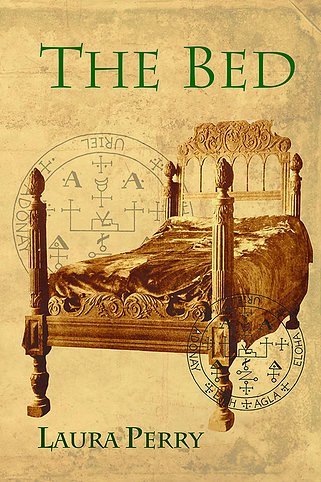Magical Realism: Contradiction in Terms?
A guest post from Laura Perry
 I’m a writer, and a portion of what I write is fiction that qualifies as magical realism. My most recent novel, The Bed (http://www.lauraperryauthor.com/the-bed), definitely qualifies. I’ve had a few people question that term, suggesting that it’s a contradiction. After all, according to mainstream society and “common sense,” magic isn’t real.
I’m a writer, and a portion of what I write is fiction that qualifies as magical realism. My most recent novel, The Bed (http://www.lauraperryauthor.com/the-bed), definitely qualifies. I’ve had a few people question that term, suggesting that it’s a contradiction. After all, according to mainstream society and “common sense,” magic isn’t real.
I’ve written before about Pagans who practice magic but don’t actually believe in it, a habit that can lead to very unpleasant side effects (http://www.lauraperryauthor.com/single-post/2016/02/10/Pagans-who-dont-believe-in-magic-but-use-it-anyway). Mainstream society puts a great deal of pressure on us to conform to the materialist viewpoint that anything that can’t be experienced through our five physical senses or detected via scientific instruments simply doesn’t exist or is, at best, some sort of hallucination. So it’s an uphill battle against cultural pressure just to consider the possibility that magic is a real thing.
There’s a sizeable portion of the Pagan/alternative/New Age community that explains magic as some sort of psychological effect, which is fine as far as it goes. There’s plenty we don’t know about how the psyche works, so chalking magic up to psychological thingamawhatsies is tantamount to invoking a version of Clarke’s Third Law (https://en.wikipedia.org/wiki/Clarke%27s_three_laws) with the human brain in place of some sort of constructed technology. That, too, is just fine, since no one really knows why or how magic works.
The thing is, magic does work. It produces effects—sometimes unexpected or unpleasant ones—in the material world. Whether that’s through the forces of the human mind or the workings of Nature or the intervention of divine beings is up for discussion.
If magic works, then it’s reasonable to write stories about it and say that those stories are examples of magical realism. Bear in mind that fiction, even fiction that’s based on “true life” stories, is still a made-up thing. But good fiction is a believably made-up thing. I’ve seen the results of magic, both good and bad, enough times to be willing to slide it into the underpinnings of my stories. I don’t write about people flying through the air on broomsticks or shooting flames out of their hands. I write about the kinds of magic I’ve experienced myself: dreams and visions, rituals that go well or that get out of hand, customs that are designed to safeguard the practitioner and that can result in disaster if they’re ignored.
These things aren’t fantasy, though not everyone experiences them. And of course, even people who’ve experienced them may choose not to believe in them since mainstream society still says magic isn’t real (I’ve seen that happen—cognitive dissonance is a powerful and frightening thing). That’s another useful bit for my fiction: the conflict with friends and family members who think you’re crazy for even considering the idea that magic actually works. But in real life, it can be less than fun to deal with.
So no, I don’t consider “magical realism” to be a contradiction in terms. I enjoy writing it and I enjoy reading it. But more than that, I enjoy living it.





